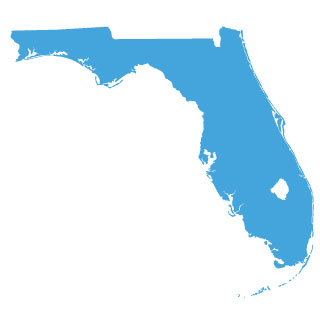
Associations representing assisted living operators in Florida have agreed to drop their legal challenges to a rule requiring them to install generators for resident safety during power outages. Instead, they will support a revised proposed rule issued Friday by the state Department of Elder Affairs, Gov. Rick Scott announced Tuesday.
Challenges against the state Agency for Health Care Administration also are being dropped in relation to a previously proposed rule that would have applied to nursing homes.
Tuesday’s announcement marks the end of a contentious battle between provider organizations and the state government. That fight began in September after the governor issued an emergency generator rule following the deaths of eight residents of a Hollywood, FL, rehabilitation facility after a power outage related to Hurricane Irma knocked out the facility’s air conditioning. Six additional residents of the facility later died, and a medical examiner ruled that 12 of the deaths were homicides caused by environmental heat exposure. Provider organizations argued that the emergency rule and subsequent efforts did not factor in enough time for compliance.
The newly proposed rules must be ratified by the state legislature to go into effect, but Scott and the associations said they will accomplish their shared goal of keeping residents safe in emergencies.
“We are very pleased with the modified rule,” Steve Bahmer, president and CEO of LeadingAge Florida, told McKnight’s Senior Living. “It clearly took into consideration and included input from those of us who represent assisted living communities around the state. It’s a much-improved rule, and we think it will go a long way to ensure that folks in assisted living environments are safe in an emergency.”
The Florida Assisted Living Association, the Florida Health Care Association and the Florida Senior Living Association also said they support the revised rule.
Rather than requiring assisted living communities to install generators, the rule posted Friday would require each community to have an alternative power source, such as a generator, on the premises.
Additionally, assisted living communities would be required to submit supplements to their emergency management plans indicating how they would obtain and store the fuel necessary to keep temperatures at or below 81 degrees Fahrenheit for at least 96 hours after a power outage. Plans would be due June 1, although communities could apply for waivers or an extension until Jan. 1, 2019, under certain circumstances.
Assisted living properties with 16 or fewer beds would be required to keep enough fuel to last 48 hours on the premises, and communities with 17 or more beds would be required to have 72 hours’ worth of fuel on-site unless prohibited by local ordinance. A property in an area that has been declared in a state of emergency would need to obtain enough fuel to last 96 hours.
The rule also provides more guidance to communities about the areas they must cool and maintain for resident safety.
Bahmer said LeadingAge Florida appreciated that the proposed rule recognizes the differing needs and capabilities of assisted living communities in the state based on their size. “It was important that the rule took that into account in terms of fuel storage and other important considerations,” he said.
The proposed rule allows assisted living communities to use portable fuel containers.
See the rule proposed for assisted living here.



